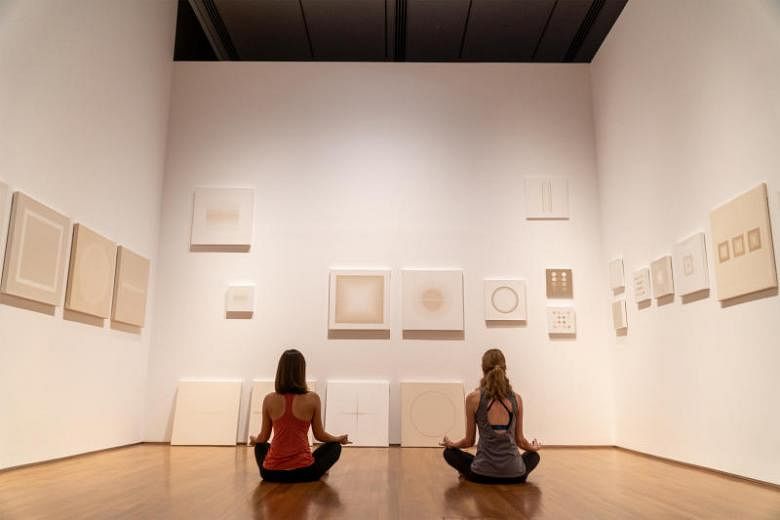SINGAPORE - The last big pandemic, the Spanish flu in 1918 came on the heels of World War I and inspired the Dada movement and the Bauhaus school of art and design.
Dr Eugene Tan, director of National Gallery Singapore and Singapore Art Museum, noted this point before asking: "What can we expect out of the current pandemic? The important question is what effect this has had on art, and what lasting impact it will have."'
His question kicked off an online roundtable discussion about arts in the time of Covid-19 , which drew 100 participants on June 10. Organised by the Institute Of Policy Studies in partnership with NGS and SAM, the Roundtable Discussion On Art In The Time Of Pandemic: Meaning, Relevance And Future is part of the institute's Spotlight On Cultural Policy Series Ten.
Over an hour and a half, five arts practitioners and researchers on the panel spoke about how the pandemic had impacted their practice and touched on issues about the role of art in society and the impact of a mass migration to digital platforms.
Playwright and theatre critic Nabilah Said noted that in Singapore, standards of productivity and success are applied to the arts just as it is in other sectors of society, and this has caused her anxiety as a practitioner hobbled by theatre closures. "If I'm not writing, am I still a playwright? I've been valuing myself so much in terms of the work that I'm doing, in terms of the product that I've been creating or helping to create, and I'm so entrenched in this capitalistic structure that when I'm not working. I find almost no value in myself," she said.
The financial impact of Covid-19 on the arts was also raised. Dance artist and researcher Nirmala Seshadri pointed out that the content that arts groups are putting online is currently free and therefore not sustainable.
At the same time if economic gain is the only measure of survival, she added: "While theatre and dance writ large may survive, many theatre and dance groups and artists among the most marginal in their respective scenes will almost certainly not. And we have to come to terms then with the loss that was allowed to happen."
It was not all doom and gloom, however, as the panellists pointed to how the arts community has rallied to help each other, as well as society at large.
Filipino art critic and curator Marian Roces helped start a charity drive to feed the urban poor by getting musicians to perform live on Facebook. She said some 200 artists took part in online performances every night for two and a half months, raising some $2 million in the process: "Many of the artists themselves were suffering. The crew had no jobs. But they all helped."
Seshadri said that the pandemic is also a good time for artists to take stock: "This is a valuable time for reflection, which is also an important part of the artistic process. In a rapidly changing environment, we all need that time to absorb what is actually happening."
She suggested a "reflection grant" which will allow artists to focus on creation rather than production: "Would the wider society be willing to acknowledge the centrality of the arts and do what it takes to support the cause?"
There is also reason to hope that there are routes to reviving live performances and audience attendance. National University of Singapore's associate professor of theatre studies Robin Loon suggested that in Phase 2 of Singapore's exit from the circuit breaker, small performances might be allowed, with small audiences gradually re-introduced to venues.
Despite the "doom narratives", he added: "What we need to understand is that we will emerge from this. What should we do in the interim, that is important. How do we, as an artist, as a community, empower ourselves to continue our practices in a different format that still empowers us and connects us to the audience?"












